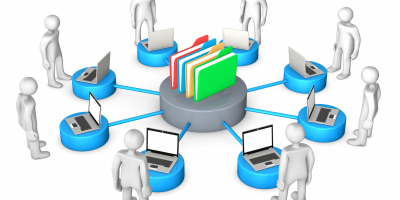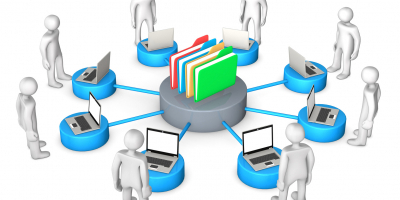
Para qué te prepara este curso subvencionado Curso Gratuito Certificación en Inglés B1 para Profesionales de la Informática: It Consulting Expert (Nivel Oficial Marco Común Europeo) + Titulación Universitaria:
Este Curso de Inglés B1 le prepara para adquirir los conocimientos necesarios para poder obtener el título oficial de consejo europeo: B1. Con la realización de este Curso de Inglés Nivel Intermedio acredita el dominio de una Lengua Extranjera equivalente al Nivel B1 del Marco Común Europeo de Referencia de las lenguas, de acuerdo con la Recomendación nº R(98) 6 del Comité de Ministros de Estados Miembros de 17 de Octubre de 2000.
A quién va dirigido:
Este curso en Inglés B1 para Profesionales de la Informática: It Consulting Expert está dirigido a Profesionales, estudiantes, desempleados o cualquier persona en el sector de la informática interesada en formarse en el aprendizaje del inglés, el cual hablan alrededor de 400 millones nativos hablantes y adicionalmente 500 millones que tienen inglés como segunda lengua.
Objetivos de este curso subvencionado Curso Gratuito Certificación en Inglés B1 para Profesionales de la Informática: It Consulting Expert (Nivel Oficial Marco Común Europeo) + Titulación Universitaria:
- Comprender frases y expresiones de uso frecuente en el mundo de la informática relacionadas con áreas de experiencia que le son especialmente relevantes (información básica sobre sí mismo y su familia, compras, lugares de interés, ocupaciones, etc.). - Comunicarse a la hora de llevar a cabo tareas simples y cotidianas que no requieran más que intercambios sencillos y directos de información sobre cuestiones que le son conocidas o habituales. - Describir en términos sencillos aspectos de su pasado y su entorno así como cuestiones relacionadas con sus necesidades inmediatas.
Salidas Laborales:
Cualquier puesto en el mundo de la informática, refuerza tus expectativas laborales comunicándote de manera fluida en inglés.
Resumen:
El Inglés es una lengua que hablan alrededor de 400 millones de nativos y adicionalmente 500 millones de personas que tienen el inglés como segunda lengua. Hoy en día, el aprendizaje de este idioma es básico y esencial en cualquier ámbito profesional, sobre todo en el campo de la Informática. A través de este curso en Inglés B1 para Profesionales de la Informática: It Consulting Expert, el alumno obtendrá las herramientas teorico-prácticas necesarias para desenvolverse eficazmente en este idioma en el mundo de la informática, además de reforzar las expectativas laborales comunicándose de manera fluida en inglés. Los contenidos están adaptados al Marco Europeo Común de Referencia, lo cual permite una mayor compatibilidad con otros sistemas de enseñanza de idiomas y facilita la movilidad geográfica de la persona que se acredita.
Titulación:
Doble Titulación: - Titulación de Certificación en Inglés B1 para Profesionales de la Informática: It Consulting Expert (Nivel Oficial Marco Común Europeo) con 180 horas expedida por Euroinnova Business School y Avalada por la Escuela Superior de Cualificaciones Profesionales - Titulación Universitaria de Inglés B1 con 200 horas por la Universidad Rey Juan Carlos
Metodología:
Entre el material entregado en este curso se adjunta un documento llamado Guía del Alumno dónde aparece un horario de tutorías telefónicas y una dirección de e-mail dónde podrá enviar sus consultas, dudas y ejercicios. Además recibirá los materiales didácticos que incluye el curso para poder consultarlos en cualquier momento y conservarlos una vez finalizado el mismo.La metodología a seguir es ir avanzando a lo largo del itinerario de aprendizaje online, que cuenta con una serie de temas y ejercicios. Para su evaluación, el alumno/a deberá completar todos los ejercicios propuestos en el curso. La titulación será remitida al alumno/a por correo una vez se haya comprobado que ha completado el itinerario de aprendizaje satisfactoriamente.
Temario:
PARTE 1. INGLÉS B1
- UNIT 1. BIRTHDAY PARTY
- Planning a birthday party
- La expresión del deseo. Would like
- La posición de enough
- Family matters
- La diferencia entre presente simple y presente continuo
- Los adjetivos acabados en -ing
- I just love music
- Little, a little y much
- Few, a few y many
- El grado comparativo de los adjetivos
- UNIT 2. LAPTOP OR DESKTOP
- Laptop or desktop
- El participio de pasado, adjetivo
- Los usos de all
- Science is amazing
- Los pronombres posesivos
- El comparativo de igualdad
- Las expresiones as much? as y as many? as
- Technology will change the future
- Also, as well y too
- Must y have to
- UNIT 3. FLATMATES
- A new flatmate
- La expresión used to
- El adverbio yet
- Los adverbios ever y never
- La posición de even
- People, people, people
- El grado superlativo de los adjetivos
- El modo imperativo
- Some y any
- El pasado continuo
- Hobbies
- Can, could y be able to
- Las oraciones interrogativas indirectas
- How much y how many
- La estructura not? either
- UNIT 4. LOCKED OUT OF MY HOUSE
- Locked out my house
- Always + Presente Continuo
- El futuro próximo (going to)
- El Condicional Simple
- La diferencia entre futuro simple y futuro próximo
- Emergency!!
- El Uso y la Omisión del Artículo The
- El pasado simple 1
- El pasado simple 2
- Las preposiciones in y at
- Las question tags
- A good health
- La estructura to get+adjetivo
- Verbos + oración de infinitivo
- Los modales should y ought to
- Las palabras compuestas
- UNIT 5. THE WRONG TRAIN
- The wrong train
- La expresión to look forward to
- I really enjoyed my trip
- El presente perfecto
- A nice hotel and restaurant
- Had better y would rather
- Must y have to
- UNIT 6. THERE?S WATER EVERYWHERE
- There?s water everywhere
- Los adverbios ever y never
- El adverbio yet
- It?s animal!!
- El pasado continuo
- The planet we live in
- Can, could y be able to
- UNIT 7. WATCHING TV
- Watching TV
- Conectores de tiempo + presente simple
- Should / ought to: probabilidad
- TV programmes and famous people
- La voz pasiva 1
- La voz pasiva 2
- Must probabilidad
- Me and the movies
- Los pronombres y adverbios relativos 1
- Los pronombres y adverbios relativos 2
- Los auxiliares will y shall
PARTE 2. INGLÉS B1 PARA PROFESIONALES DE LA INFORMÁTICA
- UNIT 1. TECHNOLOGY AND SOCIETY
- Grammar
- Word order in questions
- Present Simple and Present Continuous.
- Defining relative clauses.
- Vocabulary
- Reading: How has technology changed your life?
- Writing: Technology and its potential risks.
- Listening: Buying a computer.
- Speaking: Let?s come back to the past.
- UNIT 2. INFORMATION TECHNOLOGY
- Grammar
- Past Simple regular and irregular verbs
- Past Continuous
- Questions with and without auxiliaries
- So, because, but, although
- Vocabulary
- Reading: The ZX Spectrum
- Writing: Computers in the future
- Listening: Touch screens
- Speaking: The most important moment
- UNIT 3. THE INTERNET
- Grammar
- Going to vs Present Continuous (future arrangements)
- Will / won?t (predictions)
- Will / won?t (promises, offers, decisions)
- Vocabulary
- Reading: A brief history of the Internet
- Writing: The Internet will change
- Listening: Internet addiction
- Speaking: What does the Internet mean for society?
- UNIT 4. SECURITY AND SAFETY
- Grammar
- Present Perfect (experience) + ever, never
- Present Perfect vs Past Simple
- Present Perfect Simple + yet, just, already
- Comparatives (as...as / less?than)
- Superlatives
- Vocabulary
- Reading: Internet Safety
- Writing: Are you really safe?
- Listening: What parents need to know about Internet Safety
- Speaking: Telling stories
- UNIT 5. CUSTOMERS CARE
- Grammar
- Uses of the Infinitive + TO and verb + -ING
- Have to, don?t have to, must, mustn?t (Contraction: mustn?t = must not)
- Expressing movement: Prepositions of movement.
- Reading
- Read about the importance of customer care in the following article.
- Vocabulary
- Useful expressions to make suggestions to improve negative service.
- Customer focus.
- Customer focus follow-up.
- Useful phrases for a Rep and a customer.
- Writing: List of suggestions to improve negative customer care service.
- Listening: Face to face with customers.
- Speaking: You are in a meeting with a possible new customer. Answer their questions.
- UNIT 6. TELEPHONING AND E-MAILS/LETTERS
- Grammar
- First Conditional: If + present, will + infinitive & Second Conditional: If + past, would + infinitive
- May/might + infinitive (Possibility)
- Should/shouldn?t (Advice)
- Reading
- Vocabulary
- Good customer-oriented telephone techniques.
- How to better understand the customer on the phone.
- Useful phrases to make phone calls.
- Exercise 1: Complete the sentences with the correct form (present or past) of phrasal verbs from the box.
- Exercise 2: Match the two parts to make sentences and questions.
- Salutations and closes in letters and emails.
- Phrases to use in formal and informal emails.
- Writing: Write an email.
- Listening: Phone calls.
- Speaking: Spelling.
- UNIT 7. MEETINGS AND PRESENTATIONS
- Grammar:
- Present perfect + for and since
- Present perfect or past simple?
- Used to / Didn?t use to / Did? use to??
- Reading
- Read the following steps for giving an effective presentation.
- Vocabulary
- Different type of meetings. Match the different types of meeting (1-6) with the definitions (a-f).
- Useful phrases to arrange a meeting.
- Useful phrases to start a meeting.
- Discussing facts.
- Taking part in discussions.
- Dealing with offers.
- Ending a meeting.
- Effective openings for a presentation.
- Structuring a presentation.
- Effective conclusions for a presentation.
- Writing: Prepare a short presentation on one of your company?s products or services.
- Listening: Chairperson talking at a meeting.
- Speaking: Practising asking for and giving opinions.
- UNIT 8. SOCIALISING (NETWORKING)
- Grammar
- Passive: be + past participle
- So, Neither + auxiliaries
- Reading: Networking trips
- Vocabulary
- Safe small-talk topics.
- Welcoming visitors to your company.
- Giving directions.
- Moving from small talk to business.
- Free-time activities.
- Keeping the conversation going.
- Showing visitors around a place where you live or work.
- Recommendations to visit a place.
- Eating out: Explaining a menu.
- At a restaurant.
- Talking about family.
- At the end of a meal.
- Writing: Plan a full day starting at 9 a.m. and finishing at night to make the best possible impression on two foreign potential clients.
- Listening: Visiting a company.
- Speaking: Socializing in a restaurant.
curso gratuito le prepara para ser
Cualquier puesto en el mundo de la informática, refuerza tus expectativas laborales comunicándote de manera fluida en inglés.
. ¿A qué esperas para llevar a cabo tus proyectos personales?.








quiero comenzar el curso genial seria para mi aprender mas de este idioma universal.
UNA META MAS PARA SUBIR EL NIVEL DE ESTE IDIOMA
Buenas tardes para tener más información gratuita puede rellenar el formulario y le informamos sin compromiso.
UNA META MAS PARA SUBIR EL NIVEL DE ESTE IDIOMA